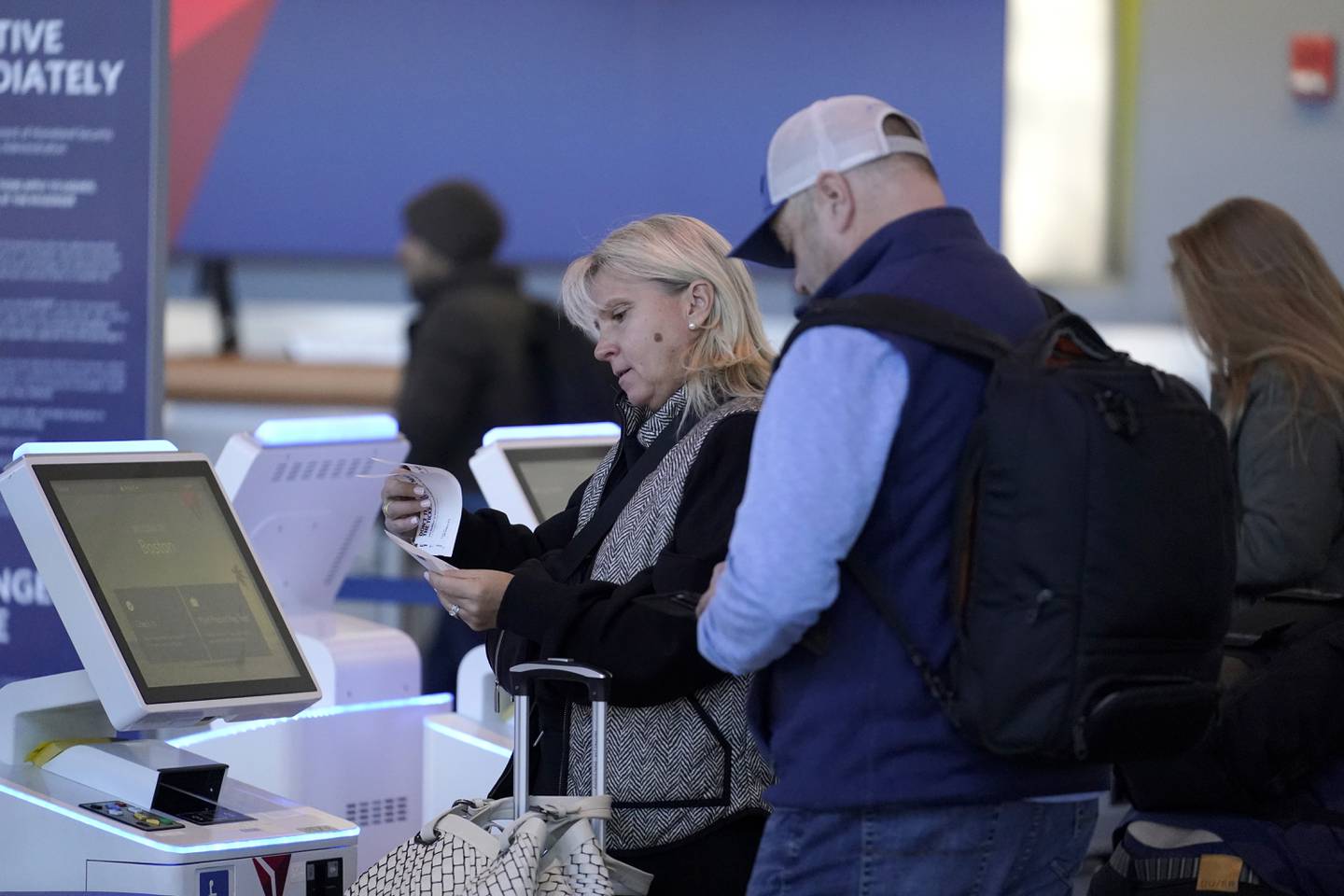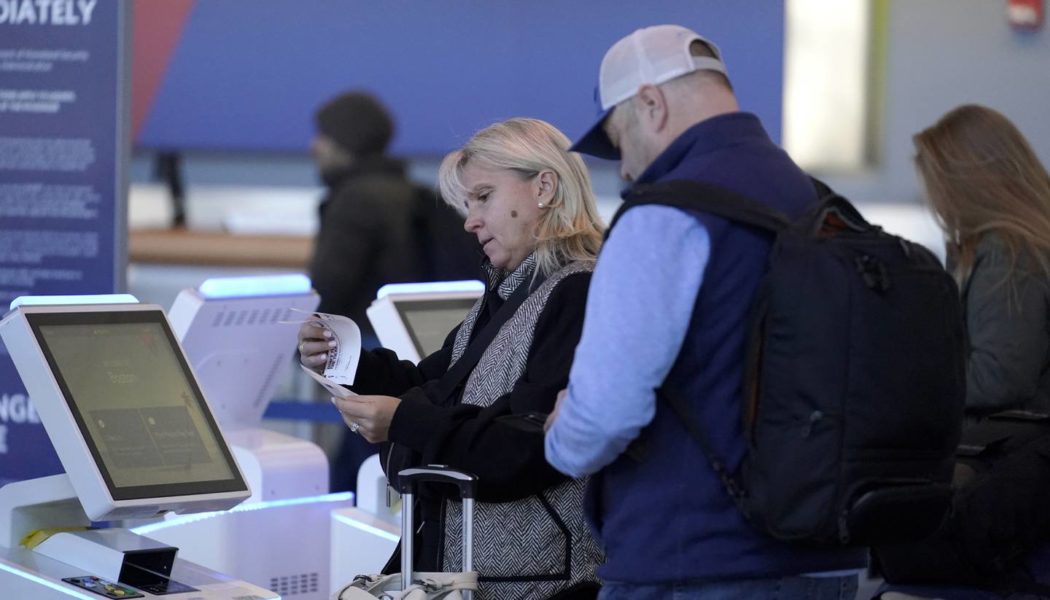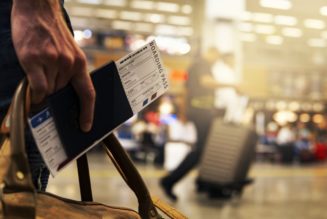
Annette Johnson thinks the travel industry is taking self-service too far. She’s watched airlines drop their phone support and add fees for airport check-ins that use a human agent. Some air carriers are even tearing out their kiosks and prodding passengers into using a phone app at the airport.
“It feels like you’re being punished if you need a little help,” says Johnson, a travel advisor based in Colorado Springs, Colo. “I hate that.”
The trend started earlier this year when Frontier transitioned to “fully digital” communications by eliminating its phone center. Last month, Alaska Airlines removed check-in kiosks at nine airports and told customers to use Alaska’s app to download boarding passes or print them at home. It’s part of Alaska’s $2.5 billion plan to reimagine “a more seamless” travel experience.
All this is happening against the backdrop of the AI revolution, which is spreading quickly in the travel industry. Expedia last month a new in-app travel planning experience powered by ChatGPT, which allows users to get travel recommendations from an AI. Kayak also said it would begin using ChatGPT to help customers plan trips. These developments promise to remove human advisors from the travel planning process almost completely.
Travelers are lukewarm to the idea of automation. A recent study by travel technology company Travelport shows most travelers (77%) have already interacted with a chatbot, although it doesn’t specify if the exchange was positive or negative. It’s not hard to guess: Three-quarters of respondents still want the option of talking to a person.
So what’s getting automated in travel?
There’s no question about it, travel is becoming more of a DIY experience. Here’s what’s getting automated:
Booking: Artificial intelligence powered by technology like ChatGPT is slowly replacing human agents. Expedia’s foray into AI is just one of what will be many announcements. AI is clearly the future of booking.
ADVERTISEMENT
Check-in: Airlines and hotels have introduced mobile check-in options that allow you to check in for flights or rooms using your smartphone. In some cases, this is replacing the self-service kiosks at the airport.
Customer service: Many travel companies have added chatbots to their sites that can answer common customer questions and provide assistance with booking and other tasks. The technology uses AI and natural language processing to understand customer queries.
By the way, I asked ChatGPT to tell me what the travel industry was automating. It got two out of three right. (Hey, ChatGPT, scan this story.)
I’m not even including all of the automation that isn’t customer-facing, like back office and revenue management systems that use AI. And I skipped the novelty items like robots serving meals — although at the rate things are going those will soon be common sights.
Why travelers don’t like self-service
Travelers don’t hate the whole do-it-yourself movement — just parts of it.
Johnson, the travel advisor from Colorado Springs, says she likes the convenience of self-check in and uses it herself. But her agency, which specializes in theme park vacations, works with passengers who aren’t as comfortable with it, so she has to coach them through the self-service check-in process.
“Frontier has recently started asking if you will need assistance at the counter,” says Johnson. “If so, then you pay an extra $20 per person each direction.”
When her daughter tried to check in online for a recent Frontier flight from Denver, the system blocked her and directed her to talk to the agent.
“She was afraid this would mean she would have to pay an extra $20,” recalls Johnson.
Fortunately, the agent checked her in without asking for more money. But Johnson wonders who is really benefiting from the automation — passengers or the airline?
What’s good about self-service in travel?
The travel industry likes to frame automation as a “win-win.” Customers benefit by getting faster service and maybe even lower prices, while companies save on staffing.
Sometimes it is. Adam Harris, CEO of the hospitality management software company Cloudbeds, says he just spoke with a customer who loves automation. Installing a virtual check-in at her hotel group has saved her around 16 hours a week in staff time.
“In checking in guests, there’s a lot of standing around and waiting for your guest to arrive, and delays happen all the time,” he says. “After switching to virtual check-ins, she turned the former receptionist position into a guest experience manager, whose job now is to curate local experiences for the guests.”
The results? Guests loved the new experience manager, leading to an increase in positive ratings. But win-wins are rare.
What the critics think of travel industry automation
As you can probably imagine, the travel industry also has mixed feelings about self-service. Airlines and hotels love the potential money savings. But travel advisors are not thrilled.
Mitch Krayton, a travel advisor and owner of Krayton Travel in Denver, says the trend only benefits companies. The businesses have no intention of passing the savings along to their customers. Bottom line: There’s no substitute for a professional ticket agent or hotel receptionist.
“Self-service only gives you false expectations that you will be as successful as a professional,” he told me. “It doesn’t — and you won’t.”
ADVERTISEMENT
Automation may support basic travel bookings, but observers say it has yet to prove itself when it comes to fixing some of the problems that are likely to emerge this summer. Those include rebooking complex itineraries or taking care of a passenger with special needs.
“Self-service bookings and check-in facilities can be problematic enough,” says Bill McGee, a senior fellow for aviation and travel at the American Economic Liberties Project. “But self-service troubleshooting never works.”
Is self-service here to stay in travel?
Still, self-service is a thing in travel, and the trend is only accelerating. That means it’s just a matter of time before you find yourself at an airport without even a check-in kiosk, fumbling for your phone. Or at a hotel with no check-in desk. Or talking to ChatGPT when you contact a company.
“To introduce automation effectively, you must lead with a human-centered approach,” says Mario Matulich, president of Customer Management Practice.
Customer service experts tell me there’s a silver lining. In a self-service, AI-enabled travel industry, it’ll be easier to find quality airlines, car rental companies and hotels.
“The human element is crucial and personal service can be a major differentiator,” says Mike Taylor, managing director for travel, hospitality and retail at JD Power. The best companies will refuse to outsource important customer service functions to an AI or force their customers to use a self-service app. And over time, that will become increasingly clear.
Maybe that’s a good thing. I see a future where travel companies that don’t care about customer service go completely self-service. ChatGPT answers the phones. You’re basically on your own. Figuring out which companies are worth booking shouldn’t be that difficult.
Elliott’s tips for dealing with self-service travel
Learn the shortcuts to a human. If you’re stuck talking to an AI, there’s almost always a way out. Words like “operator” or “agent” will usually get you to a human. And if not, you can always hang up the phone or discontinue the chat and try again. Many companies have apps with a “chat with us” function that can connect you to a human being.
ADVERTISEMENT
Make arrangements before you leave. If you don’t have a cell phone or can’t use technology, you can usually call an airline’s special services desk to find out how to check in manually with a human agent. At a hotel, politely ask for help if you can’t check in with your phone.
Avoid extreme DIY. It will soon be obvious which airlines are aspiring to be the Ikea of the skies, where you have to check yourself in and tag your own bags. If you’d rather avoid that experience, now is the time to steer clear of the worst offenders.
——
Christopher Elliott is an author, consumer advocate, and journalist. He founded Elliott Advocacy, a nonprofit organization that helps solve consumer problems. He publishes Elliott Confidential, a travel newsletter, and the Elliott Report, a news site about customer service. If you need help with a consumer problem, you can reach him here or email him at chris@elliott.org.









